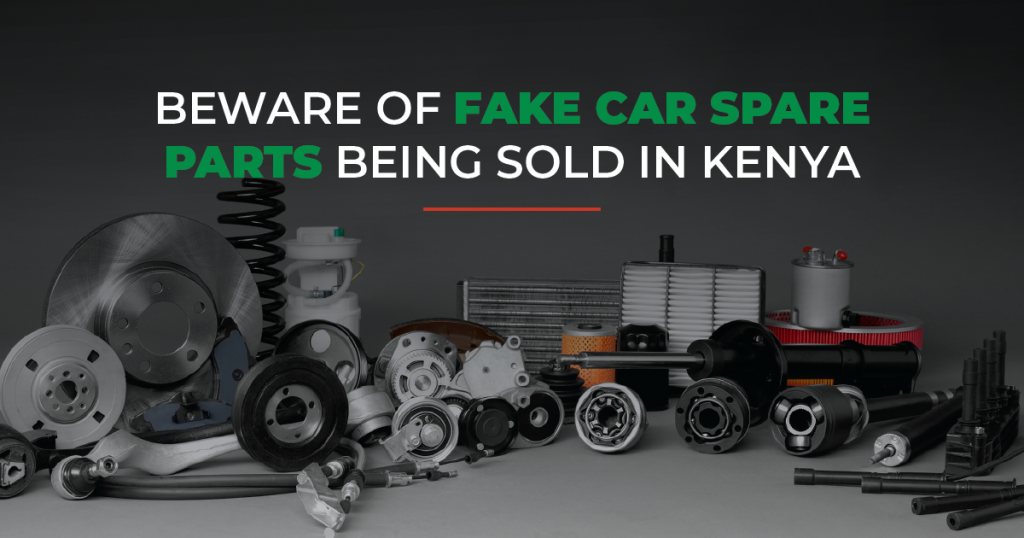Introduction
Fake car spare parts pose a huge problem for the motor industry in Kenya, more so the consumer. Lack of regulation and proper regulatory framework on spare parts inspection has led to the dumping of fake spare parts in Kenya by unscrupulous traders.
These traders wish to make a quick shilling at the expense and detriment of the buyers. How bad is the situation and how can we play our part in educating the masses on the dangers of using fake spare parts? Let’s find out.
The Genesis
Since the government liberalised the motor vehicle industry in 1994, it began the process of de-regularising the acquisition of parts from dealers to anyone willing to import parts for the market. This was done to meet the growing demands fuelled by the flooding of grey imports, that was non-existent before 1994.
The Kenya Bureau of Standards lacked the prerequisite conformity of standards guidelines to check the quality of imported parts. This has led to the growth of the largest counterfeit spare parts industry in sub-Sahara Africa.
The popularity of some brands like Nissan and Toyota has been fuelled by the availability of these counterfeit parts. They are cheap and readily available, compared to acquiring a similar genuine part from an authorized dealer. These parts barely serve their intended purpose thus compromise on the overall safety of your car and life.
A Victims Experience
A good example is the oil filter, a relatively inexpensive part but plays a major role in the safe operation of an engine. Here’s an experience someone had:
He installed a fake oil filter on his car during service, and decide to go for a road trip. As he powered his Toyota up escarpments, the engine under load created huge oil pressure and put a strain on the oil filter.
Next thing he heard was a loud explosion in the engine bay. He then slowed down, and on inspecting oil splattered all over and his car couldn’t start. In the end, he was left with a huge dent in his wallet as he had knocked his engine. That said, what is the way forward to curb the use of counterfeit parts?
The Way Foward
If you are interested in the longevity of your vehicle, avoid counterfeit parts at all costs. Many will say acquiring genuine parts is an expensive venture from authorized dealers, but that’s changing.
Dealers are keen to cash in on the grey market hence some manufacturers like Nissan and Isuzu have begun selling genuine replacement parts that cost 30% less than the genuine part, thus able to compete with the fake spare parts in terms of pricing.
Conclusion
If you’re not sure if you are dealing with genuine parts, just visit your local authorized dealer and they will definitely assist you to pick the right parts for your car because cheap is expensive.
